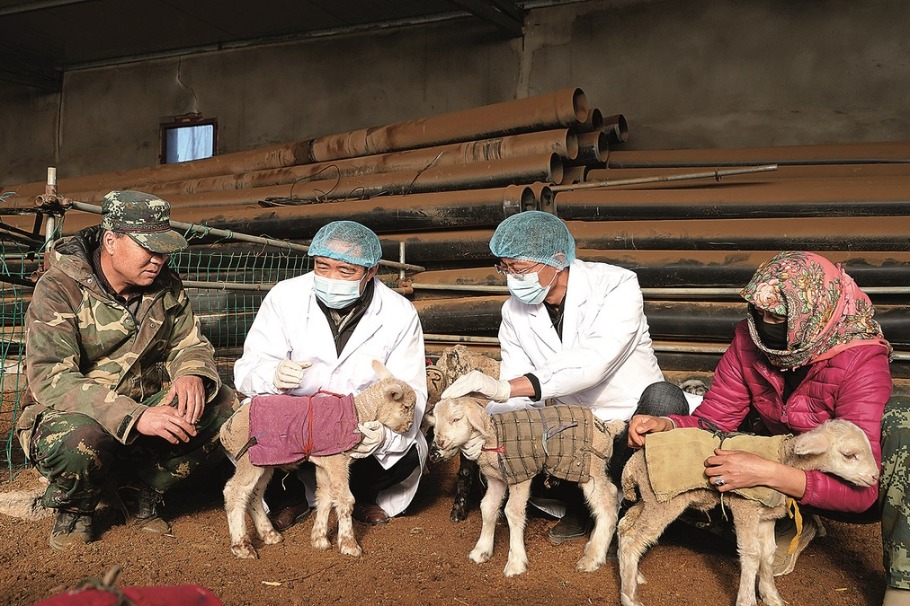Tried and tested poverty reducer
Africa has the potential to harness tourism for improving the livelihood of its rural population and reducing poverty by learning from China


Rural tourism is emerging as a creative way of revitalizing rural areas across the Global South. It promotes a unique blend of agriculture and tourism, which is crucial for the economies of many developing nations. The relationship between rural revitalization and agro-tourism integration is on the rise across Chinese provinces, highlighting agro-tourism as a highly effective means of driving rural revitalization and reducing poverty. What can Africa learn from this through South-South cooperation? Let us take Ethiopia as an example.
Ethiopia, with its rich rural diversity and heritage, stands to gain significantly from this approach by designing a common denominator of strategies for agriculture, tourism and rural development efforts innovatively within the framework of poverty reduction and sustainability, as witnessed in the Chinese experience. When we ponder on China's remarkable strides in poverty reduction from 1981 to 2020 — when its poverty rate fell from 66.3 percent to just 0.3 percent — we usually focus on rapid economic growth, while overlooking its other targeted poverty alleviation policies, in which integrating agriculture and tourism for rural revitalization and poverty reduction played a crucial role.
Coming to Africa, with its immense potential in tourism, integrating every tourism capacity with agriculture will not help. What is needed is a creative policy blend since Africa's tourism spectrum is diverse.
Take Ethiopia for example. There are many historical sites, parks and lodges that collectively enhance the tourism industry by offering unique natural and cultural experiences, creating jobs and supporting local economies through sustainable practices. But which one is suitable for agro-tourism integration? This has to be worked out, as seen in Huzhou, Zhejiang province. The 2024 Lucun Forum, hosted by the World Rural Tourism Council in Huzhou, shared many interesting and valuable lessons. The forum demonstrated findings from studies showing that both agro-tourism integration and tourism-driven poverty reduction significantly contribute to rural revitalization in China.
For instance, the Wenchi Eco-Lodge in Ethiopia seems perfect for agro-tourism integration, as its location near Wenchi Crater Lake offers fertile land ideal for sustainable farming practices. Integrating agriculture with eco-tourism here could provide fresh, locally-grown produce for the lodge, enhance the visitor experience with farm tours, and support the local economy by creating agricultural jobs. Another example is the Bale Mountains National Park, which seems to have the potential for agro-tourism since the region's agricultural activities can be linked with tourism to maximize local economic benefits and promote sustainable development.
Africa can draw valuable lessons from China's experience in integrating agriculture and tourism for rural revitalization and poverty reduction. The key lies in adopting a holistic approach that combines policy innovation, community involvement, and sustainable practices. By doing so, Africa can harness its rich natural and cultural heritage to drive economic growth and improve the livelihoods of its rural population.
One of the critical lessons from China is the importance of government support and policy direction. The Chinese government has played a pivotal role in promoting rural tourism through various initiatives and policies. For instance, the implementation of the Rural Revitalization Strategy has provided a comprehensive framework for integrating agriculture and tourism. This strategy includes measures such as improving rural infrastructure, providing financial support to rural tourism projects, and promoting the development of rural tourism products. Africa can adopt a similar approach by developing a strategy at the African Union level for rural tourism that aligns with its broader development goals.
Another lesson from China is the significance of community involvement. Local communities are actively involved in the planning and implementation of many Chinese rural tourism projects. This ensures that the benefits of tourism are shared equitably and that the projects are sustainable in the long term.
In Africa, involving local communities in rural tourism projects can help to ensure that the projects are culturally appropriate and that they meet the needs of the local population. This can be achieved through participatory planning processes, capacity-building programs, and the establishment of community-based tourism enterprises.
Sustainability is another crucial aspect of China's rural tourism model. Many rural tourism projects in China are designed to be environmentally sustainable, with a focus on preserving natural resources and promoting eco-friendly practices. For example, eco-lodges and organic farms are common features of rural tourism projects in China. Africa can adopt similar practices by promoting eco-tourism and sustainable agriculture in its rural tourism projects. This can help to protect the environment, enhance the visitor experience, and create a positive image for Africa as a sustainable tourism destination.
In conclusion, Africa has the potential to harness rural tourism for economic growth and poverty reduction by learning from China's experience. By integrating agriculture and tourism, Africa can create new opportunities for rural communities, enhance the visitor experience, and promote sustainable development. The key lies in adopting a holistic approach that combines policy innovation, community involvement and sustainable practices. With the right strategies and support, Ethiopia can unlock the potential of its rich natural and cultural heritage to drive economic growth and improve the livelihoods of its rural population.

The author is a PhD student at Peking University, ex-state minister of planning and development of Ethiopia, and vice-chairman and Africa Chapter president of the World Rural Tourism Council. The author contributed this article to China Watch, a think tank powered by China Daily.
The views don't necessarily reflect those of China Daily.
Contact the editor at editor@chinawatch.cn.
































